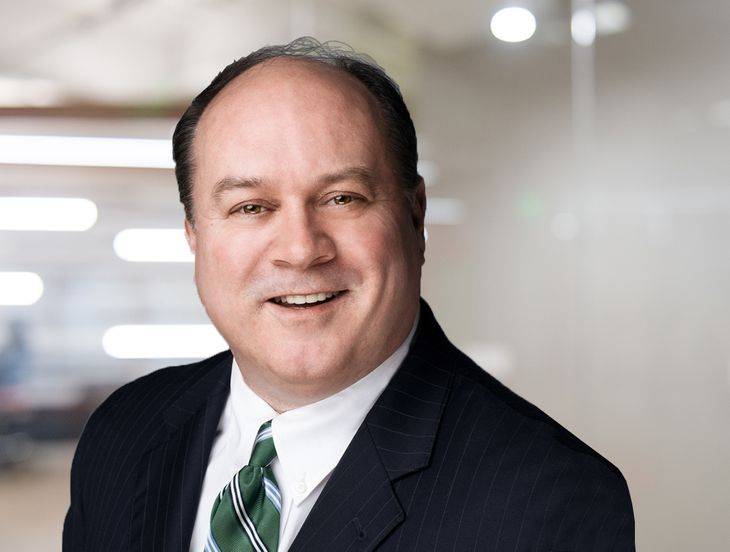The Top 17 Workplace Law Stories from April 2022
Insights
5.03.22
It’s hard to keep up with all the recent changes to labor and employment law. While the law always seems to evolve at a rapid pace, there have been an unprecedented number of changes for the past few years—and this past month was no exception. In fact, there were so many significant developments taking place during the past month that we were once again forced to expand our monthly summary well beyond the typical “Top 10” list. In order to make sure that you stay on top of the latest changes, here is a quick review of the Top 17 stories from last month that all employers need to know about:
- Transportation Mask Mandate Struck Down: What it Means for Employers
After the April 18 news that a federal court judge struck down the CDC’s mask mandate for airplanes, mass transportation, and transit hubs, many employers immediately wondered what it might mean for their business. Though masks have been lifted in most workplace settings, we still live in an uncertain time where some businesses have continued to require employees and visitors to wear masks, and the CDC recommends mask-wearing in some locations based on the spread of COVID-19 in local regions. Some localities have even reinstated indoor masking requirements. Does this latest development signal that it’s time for your business to drop your workplace mask mandate? Or should you continue to impose your own mask requirement for business travel even if masks may no longer be required on airplanes? This Insight will explore a few of the considerations you may want to take into account when determining your next steps. - Top 10 Changes California Employers Need to Prepare for As Third COVID-19 Emergency Rule About to Take Effect
California workplace safety officials just approved a third round of changes to the state’s COVID-19 Emergency Temporary Standard, and while many of them conform to recent guidance that have already been incorporated into current rules, there are 10 significant changes California employers must prepare for. Significantly, however, the changes to the ETS that were just approved on April 21 by the Cal/OSHA Standards Board do not alter your obligation to pay “exclusion pay” to employees who have been excluded from the workplace as a COVID-19 case or a close contact. While it may feel that the pandemic is in the rearview mirror, these new ETS provisions – set to take effect on May 6 – will be with us for quite some time, likely through the end of 2022. This Insight will review the top 10 changes for employers. - Surprise! Don’t Let an Office Birthday Party Cost You $450,000
You may recall the Seinfeld episode where Elaine Benes consumes a $29,000 piece of cake from the 1937 wedding of the Duke and Duchess of Windsor. A birthday cake from an office party in Kentucky may have that pricey wedding slice beat. If you haven’t heard already, a Kentucky jury just served an employer with a $450,000 bill associated with a surprise office birthday party gone awry. Does this massive legal loss spell the end of office birthday parties as we know them? Thankfully, no. Despite the media attention the April 15 verdict has garnered, it had less to do with the fact that the employer threw a surprise party than with how it handled the situation – and particularly the fallout. All kidding aside, this case has important reminders for employers about how you should handle disabilities in the workplace – and you can easily avoid a similar fate by following some commonsense steps. - Top 7 Takeaways from EEOC’s COVID-19 and Vaccine Webinar for Employers
Employers need to be especially on guard for the possibility that they may be hit with a vaccine-related EEOC charge, given than nearly a third of all pandemic-related charges filed with the agency since April 2020 involve a vaccine dispute. That’s just one of seven key takeaways shared by the Equal Employment Opportunity Commission (EEOC) during a public webinar broadcast on April 11 aimed at offering guidance to employers as we continue to navigate uncertain times. What are the seven key takeaways from the EEOC’s “Employer Guidance in our COVID-19 World” webinar? - OSHA Unveils Program to Combat Extreme Heat in the Workplace
Federal workplace safety officials just unveiled a program designed to scrutinize both indoor and outdoor workplaces for dangers related to extreme heat, putting employers on notice that they need to take steps to address the situation before withering summer temperatures kick in across the country. The U.S. Department of Labor’s Occupational Safety and Health Administration (OSHA) announced on April 12 that it has implemented a new National Emphasis Program (NEP) related to heat illnesses and injuries for both outdoor and indoor workers. As we predicted, this NEP comes after OSHA previously issued inspection guidance to its compliance safety and health officers (CSHOs) focusing on heat-related hazards and comes on the heels of OSHA’s proposal to create a permanent safety standard for hazards stemming from heat-related injuries and illnesses. What do employers need to know about OSHA’s new NEP? - NLRB’s Top Sheriff Calls for Abrupt End to 75 Years of Lawful “Captive Audience” Meetings
The NLRB’s top prosecutor just issued a memo which seeks to bar employers from convening employee meetings on working time to address union representation unless they provide employees specific assurances that participation is completely voluntary. These so-called “captive audience” meetings are routinely conducted to educate employees – particularly in response to arguments advanced by organized labor outside the workplace – and have been a staple in the American workplace since Congress amended the labor laws to recognize employer free-speech rights almost 75 years ago. Although a handful of states have enacted statutes attempting to restrict such meetings, the April 7 memo from NLRB General Counsel Jennifer Abruzzo (formally known as GC Memo 22-04) represents an unprecedented development in the annals of modern labor law. What do employers need to know about this significant step – and what should they do about it? - Washington State Rideshare Businesses Achieve Historic Compromise to Guarantee Wages in Exchange for Contractor Status
In a groundbreaking move that gig economy companies hope to be mimicked across the country, Washington just enacted a new state law that guarantees minimum per-trip pay rates, paid sick leave, and workers’ compensation benefits for rideshare drivers in exchange for a guarantee that the workers are classified as independent contractors. The compromise was the result of a deal struck between companies and an advocacy group supporting rideshare drivers. By signing HB 2076 (aka the “Expand Fairness Act”), Washington governor Jay Inslee created a California Prop 22-like solution that provides the needed flexibility sought after by gig businesses (and workers) while also offering a social safety net for workers that will enable them to perform gig work on a full-time basis if wanted. - Nothing to See Here (Yet)…NYC Council Grants Reprieve on Salary Transparency Law
With less than three weeks to go before the May 15 effective date of New York City’s salary transparency law requiring employers to disclose the expected salary range on internal and external job listings, the New York City Council voted to push back to the effective date of the law to November 1, 2022. Additionally, new amendments to the law eliminate the ability of applicants to file a lawsuit against an employer for violations and provide the opportunity for first-time violators to avoid monetary penalties if they cure the violation. The amended law will now be sent to Mayor Adams for signature, which is expected. Here is what NYC employers need to know about the amended law – and a five-step plan to comply. - Florida Home Healthcare Worker Found to be Misclassified as Contractor – An Employer’s Survival Guide to Avoid Similar Fate
In a stunningly broad ruling that should send shivers down the spine of every home healthcare agency that uses an independent contractor workforce, a Florida federal court ruled on April 12 that a home healthcare worker who provided in-home healthcare and companion services to elderly individuals and adults with disabilities was actually an employee, not a contractor. As a result of this misclassification finding, the worker will be entitled to three years’ worth of unpaid overtime wages, plus liquidated damages in an amount double her unpaid wages owed – not to mention the door is now open for similarly situated workers to line up at the courthouse steps as well. This finding also opens the employer to risks of related consequences with the IRS and under other employment laws not before the Court. What can your business learn from this dramatic development to avoid facing the same consequences? - Employer FAQs as Maryland Becomes 10th State to Provide Paid Family Leave
Maryland will soon be the tenth state to offer paid family leave to employees, continuing a trend that is expected to roll across the country in the next few years. This comes after the Maryland legislature’s April 9 vote to override Governor Hogan’s veto of the legislation. Under the new law, eligible employees will receive up to a weekly maximum of $1,000 for up to 12 weeks of leave on an annual basis. Additionally, employees taking leave will receive job protection for taking advantage of the paid leave benefits. The payroll tax to fund the program will take effect on October 1, 2023, and paid leave will be available on January 1, 2025. Here are a series of FAQs to assist employers with your compliance obligations. - Massachusetts High Court: Employers Are on the Hook for Triple Final Pay Even When Payment is Made Before Claim is Filed
In yet another gift to plaintiffs’ attorneys, the Massachusetts Supreme Judicial Court held on April 4 that employees are entitled to automatic triple damages for late final wage payments even where the employer pays the employee the total due before a claim is filed. This shocking ruling in Reuter v. City of Methuen is a radical departure from settled law dating back to 2003 and is sure to embolden an already aggressive plaintiffs’ bar. What does your business need to know about this unfortunate decision? - OFCCP Announces Plan to Streamline Affirmative Action Audits: 10 Key Points for Federal Contractors
The federal agency that oversees federal contractor affirmative action programs recently took several big steps towards streamlining employer audits – and that means it’s time for you to make sure you have your ducks in a row before the time comes for you to have your workplace practices placed under a microscope. Following quickly on the heels of its Directive on Pay Equity Audits, the U.S. Department of Labor’s Office of Federal Contract Compliance Programs (OFCCP) rescinded four prior Directives and clarified that contractors under audit by the agency should expect to provide fully complete and compliant Affirmative Action Plans (AAPs) on an expedited timetable. The Directive is consistent with OFCCP’s new electronic Contractor Portal requirement that has contractors preparing to certify their affirmative action compliance no later than June 30. - NY Employers Will Soon Be Required to Provide Electronic Versions of Mandatory Workplace Postings
Acknowledging that more and more employees are working from home and away from their physical worksites, the New York State legislature just passed a bill on April 26 requiring employers make mandatory workplace postings electronically available for their employees. The bill has not yet been sent to Governor Hochul’s desk for her signature – or an unlikely veto – but will become effective immediately once signed. Here is what New York employers need to know about this bill to ensure compliance. - Colorado Employers Still on the Hook for Paid COVID Leave
All employers in Colorado have been required to provide public health emergency (PHE) leave since January 1, 2021 – and your obligation to do so will continue through at least this summer due to a recent extension. Under state law, all Colorado employers must provide this leave if there is a federal, state, or local declaration of emergency. On April 16, the federal declaration of emergency was extended another 90 days. As a result, the obligation to provide PHE leave in Colorado is still currently in place. What do employers need to know about this extension – and what should you be doing to comply? - New Report Shows Inflation Driving More People to Gig Economy Work: The Secret to Turning this Trend to Your Company’s Benefit
According to a recent survey of over 1,000 workers who turned to gig work in the last six months, 85% have recently increased or planned to increase their gig work – with 58% citing inflation as the primary reason for seeking more work. The Second Annual Gig Payments Report from Branch and Marqeta, released on April 14, demonstrates that gig economy businesses have a unique opportunity to offer meaningful opportunities to willing and able contractors while bolstering their talent pools by adding talented workers to their rolls. And lying deeper within the survey is a hidden piece of information that could help differentiate your business from your competitors when it comes to attracting talent. - Good News for Ohio Employers as Overtime Laws Will Soon Align with Federal Statute
When Ohio Governor DeWine signed Senate Bill 47 into effect on April 6, he handed employers a big win by not only exempting overtime pay for commuting and other off-hours work but also requiring workers to affirmatively “opt in” to join costly class and collective actions for overtime pay. The new law, which explicitly adopts sections 2 and 4 of the Portal-to-Portal Act amendments to the federal Fair Labor Standards Act (FLSA), will take effect on July 6, 2022. What do you need to know about these welcome changes and what should you do to prepare? - What Mississippi Employers Need to Know about the State’s New Equal Pay Law
Mississippi Governor Tate Reeves recently signed a new equal pay law into effect in an effort to reduce the wage gap between men and women in the state. The “Equal Pay for Equal Work Act,” signed on April 20 and taking effect on July 1, 2022, faced heavy criticism from some workers’ advocacy groups, but Governor Reeves and other state officials believe the new law is a leap forward by aligning state law with the federal Equal Pay Act of 1963. What do Mississippi employers need to know about this new standard – and what should you to do to prepare?
We will continue to monitor developments related to all aspects of workplace law. Make sure you are subscribed to Fisher Phillips’ Insight system to get the most up-to-date information. If you have questions, contact your Fisher Phillips attorney.
Related People
-
- Cheryl L. Behymer
- Senior Counsel
-
- Steven M. Bernstein
- Regional Managing Partner and Labor Relations Group Co-Chair
-
- Amanda M. Blair
- Associate
-
- Steven R. Cupp
- Partner
-
- J. Micah Dickie
- Partner
-
- Benjamin M. Ebbink
- Partner
-
- Daniel E. Farrington
- Regional Managing Partner
-
- Andrew Froman
- Partner
-
- Greg Grisham
- Partner
-
- Teresa J. Hardymon
- Associate
-
- Edward F. Harold
- Regional Managing Partner
-
- Brett Holubeck
- Associate
-
- Courtney Leyes
- Partner
-
- Emily N. Litzinger
- Partner
-
- Todd B. Logsdon
- Partner
-
- Todd A. Lyon
- Partner
-
- Richard R. Meneghello
- Chief Content Officer
-
- Samantha J. Monsees
- Partner
-
- Joshua D. Nadreau
- Regional Managing Partner and Vice Chair, Labor Relations Group
-
- Hannah Sweiss
- Partner
-
- A. Kevin Troutman
- Senior Counsel
-
- Kristin R.B. White
- Partner
-
- Sheila M. Abron
- Partner
-
- Kelly Ahern
- Associate
-
- Melissa Camire
- Partner
Service Focus
- Affirmative Action and Federal Contract Compliance
- Counseling and Advice
- Employee Leaves and Accommodations
- Employment Discrimination and Harassment
- Labor Relations
- Litigation and Trials
- Pay Equity and Transparency
- Wage and Hour
- Workplace Safety and Catastrophe Management

























